Тема игорного бизнеса во время войны приобрела особую актуальность, ведь в этой сфере обращаются сотни миллионов и даже миллиарды гривен. Легализация игорного бизнеса открывает значительный потенциал для пополнения государственного бюджета, но насколько эффективно эта возможность реализуется?
По оценкам, теневой рынок игорного бизнеса в Украине составляет 10–15 млрд грн в месяц, однако лишь незначительная часть этих средств поступает в государственный бюджет. У руководителей КРАИЛ, которые контролируют эту сферу, зарплаты стремительно растут — в 2023 году они составили более 1 млн грн. При этом непрозрачность деклараций членов комиссии и подозрения в связях с сомнительными операторами азартных игр вызывают вопрос: почему такая прибыльная отрасль остается неконтролируемой, а государственные средства неучтенными?
Комиссия по регулированию азартных игр и лотерей (КРАИЛ) была создана как инструмент контроля над рынком азартных игр в Украине после легализации этого бизнеса в 2020 году. Ее основная миссия заключалась в регулировании, надзоре и защите игроков от негативных последствий азартных игр, а также в обеспечении поступлений в государственный бюджет. Но как орган, который должен обеспечить прозрачность, честность и социальную ответственность в этой индустрии, КРАИЛ оказалась проблемной структурой, окутанной коррупционными скандалами, непрозрачными действиями и конфликтами интересов.
В частности, компания «Parimatch» недавно очень быстро получила лицензию, которая в тот момент находилась под санкциями президента Украины, и это вызвало подозрения в коррупционной составляющей. На это обратил внимание «Телеграмм-канал Джокер». Поэтому редакция СтопКор решила разобраться, насколько реально эффективно работает Комиссия и пользуется ли для украинского бюджета.
Поступление в бюджет и зарплаты руководства
Одной из задач КРАИЛ было обеспечить поступление в бюджет за счет сборов от выдачи лицензий и налогов с игорного бизнеса. За период с 2021 по 2023 год в бюджет Украины поступили значительные суммы от деятельности операторов игорного бизнеса. В 2023 году игорный бизнес принес в бюджет Украины 10,4 млрд грн налогов, что значительно превышает поступления за предыдущие годы: в 2022 году это было около 730 млн грн, а в 2021 году еще меньше, около 200 млн грн. Однако, по оценкам экспертов, от 10 до 15 млрд грн в месяц находятся в тени, вне государственного контроля. Отсутствие системы борьбы с уклонением от налогов в сфере азартных игр создает благоприятные условия для нелегальных операций, а государственная казна теряет значительные поступления.

Кроме этого, в КРАИЛ отмечается очень высокий уровень зарплат ее руководства. Так, глава комиссии Иван Рудой в 2023 году получил общий доход в 1,399 млн грн (после уплаты налогов — 1,126 млн грн, что составляет 93,8 тыс. грн в месяц). В его заработную плату входят оклад (371,1 тыс. грн), надбавки за интенсивность работы (270,9 тыс. грн), надбавки за выполнение особо важной работы (270,9 тыс. грн), надбавка за выслугу лет (89, 5 тыс. грн) и другие выплаты, включая премии, материальную помощь и отпускные
У членов комиссии также высокие зарплаты. Кристина Дутка заработала 1,7 млн. грн

Анна Сдобнова получила 1,6 млн. грн.

Елена Водолажко, работавшая до октября 2023 года, получила 1,6 млн грн. Зарплата включает в себя оклад, надбавки за интенсивность работы и выполнение важной работы, а также денежную и материальную помощь. Зарплаты руководителей вызывают беспокойство из-за их размера, особенно на фоне проблем, с которыми столкнулась комиссия.
Алексей Ботезат – по информации журналистов, 440 тыс грн за три месяца работы.

На сайте НАПК не удалось найти декларацию Ботезата
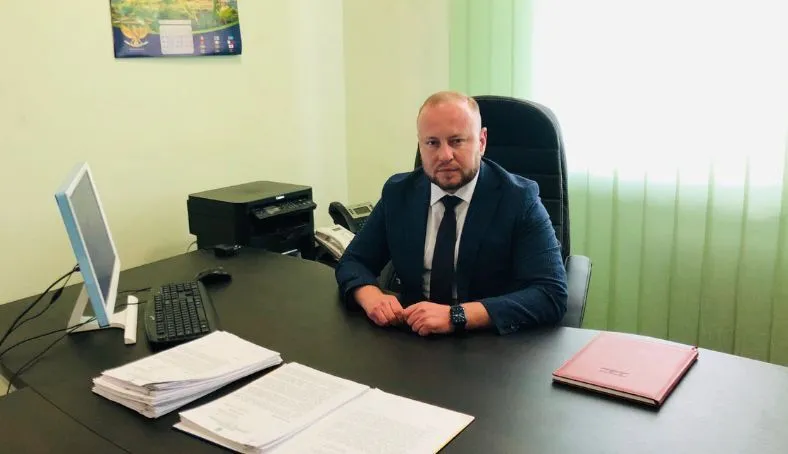
Стоит отметить, что по каким-либо причинам официальные декларации Ивана Рудого и Алексея Ботезата отсутствуют на сайте НАПК. Хотя по Закону Украины «О предотвращении коррупции» лица, занимающие ответственное или особо ответственное положение (в частности, государственные служащие), подавать ежегодные электронные декларации о своем имущественном состоянии, доходах, расходах и финансовых обязательствах. Возможно, госслужащие, члены комиссии, таким образом, скрывают свое имущественное положение и вероятное обогащение?
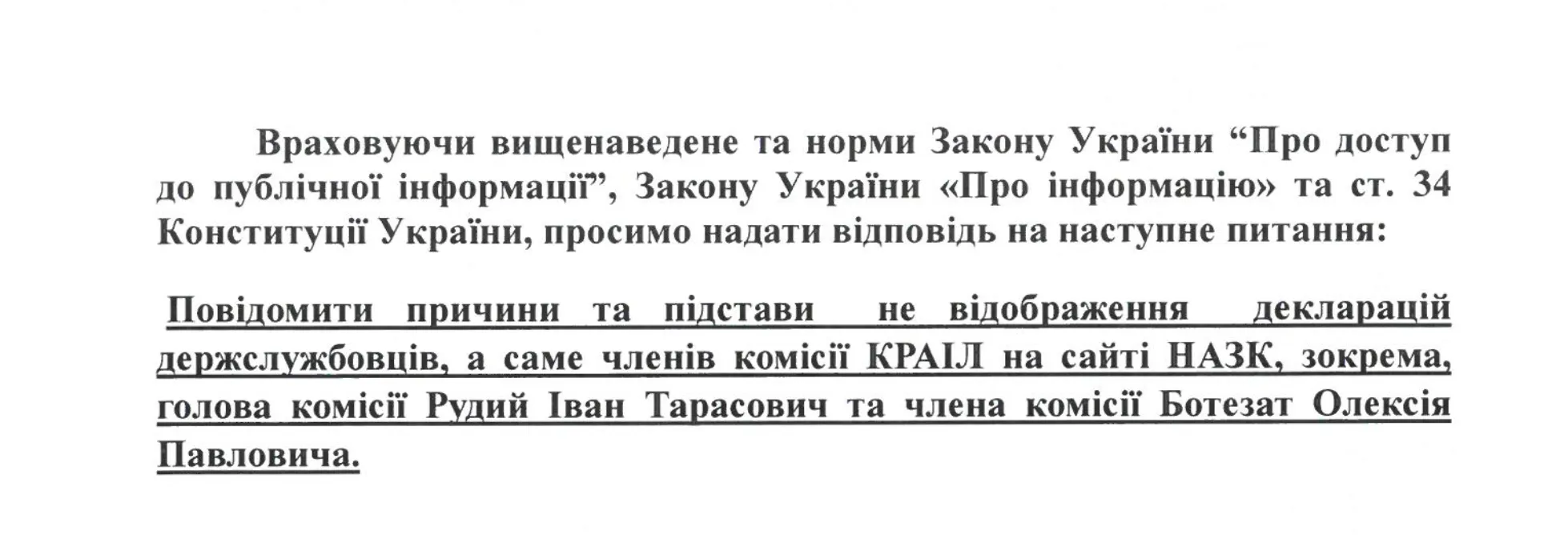
Редакция СтопКор запросила НАПК по этому поводу, но в ответ конкретики не получила. Письмо содержит неинформативные ссылки на Законы Украины и не содержит собственно информации, по которой причины отсутствуют декларации на сайте.
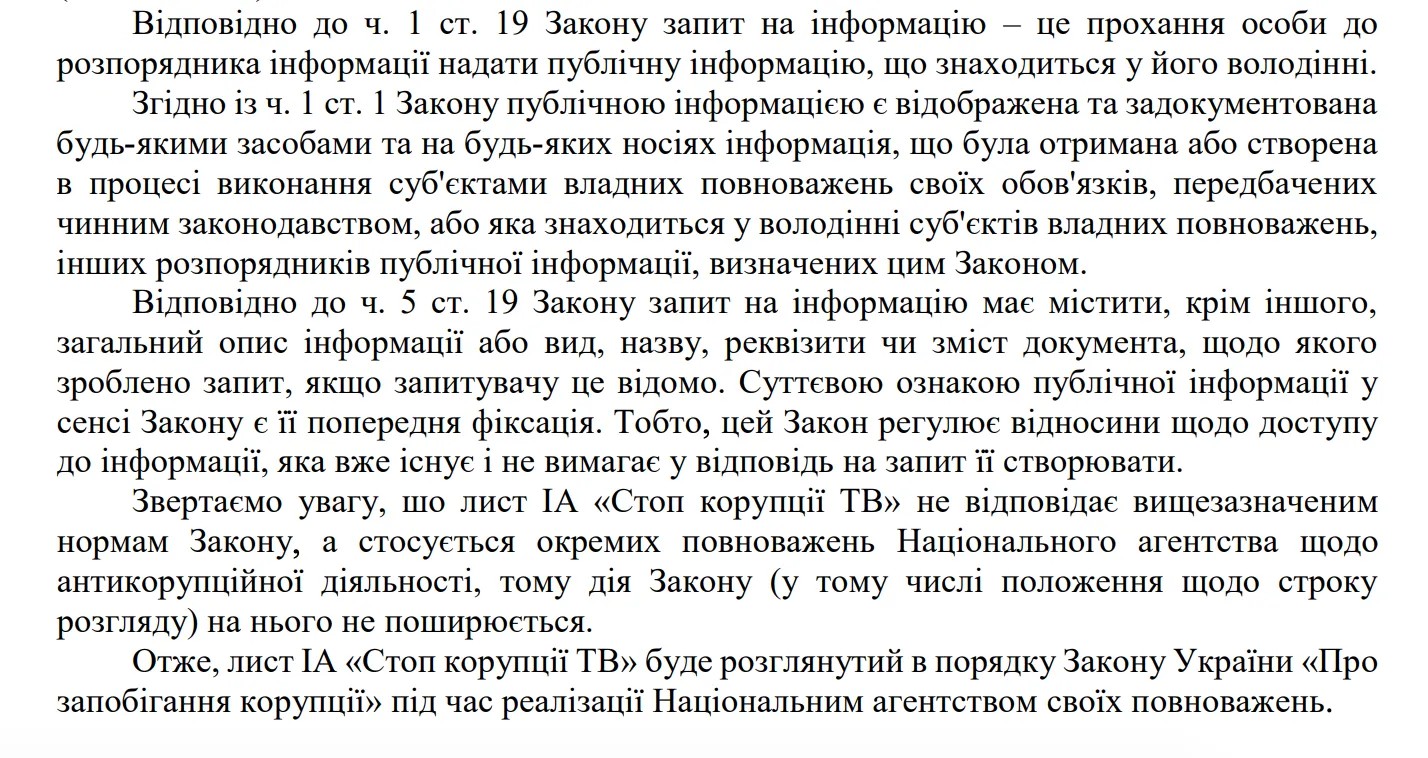
Недостаточный контроль над нелегальным бизнесом
Согласно задачам КРАИЛ, комиссия должна была бороться с нелегальным рынком азартных игр, но отсутствие должного контроля привело к тому, что большая часть рынка остается вне легального поля. Сложности с выявлением нелегальных игорных заведений, нехватка координации между государственными органами и несовершенное налоговое законодательство усложняют эту борьбу. Правоохранители часто не могут определить, является ли заведение легальным, а организаторы игорного бизнеса перекладывают ответственность друг на друга.
«Государственные лотереи не относятся к азартным играм. Никто не сможет определить, государственная лотерея это или в данном заведении осуществляется именно легальный бизнес», – заверила Наталья Калиновская, представитель департамента защиты экономики Национальной полиции Украины.
Кроме того, несовершенное налогообложение и устаревшие налоговые нормы способствуют процветанию нелегальных учреждений. Налоги, действующие для игорного бизнеса, часто не соответствуют современным реалиям, что усложняет борьбу с нелегальными операциями. Фактически рынок игорного бизнеса облагают налогами по ставкам и модели, установленной с принятием Налогового кодекса Украины в 2010 году, когда уже полтора года игорный бизнес был запрещен в нашем государстве. Об этом сообщает доктор юридических наук, доцент Зоряна Топорецкая.
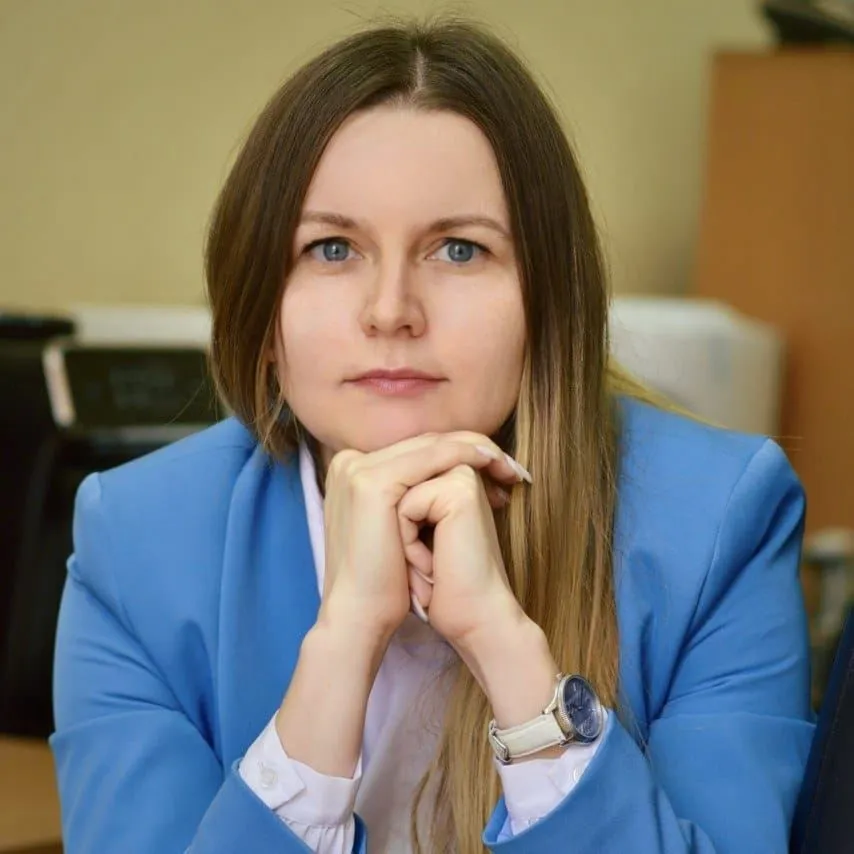
Целесообразно было бы координировать действия с полицией, Минфином и другими органами для эффективной борьбы с нелегальным бизнесом, но этот процесс остается неорганизованным. Отсутствие четких правил, ограниченных ресурсов и координации ведет к тому, что каждый орган переводит ответственность на других. В результате теневой рынок преуспевает, а государство остается без должного контроля и потери потенциальных поступлений в бюджет.
Ответственная игра: недостаточная защита игроков от лудомании
КРАИЛ должна защищать игроков от лудомании, обеспечивая социальную ответственность и предотвращая игорную зависимость. Однако многие инициативы в этой сфере остаются только на бумаге. Особенно критическая ситуация с военнослужащими, которые во время войны подвергаются высокому стрессу и становятся уязвимыми к азартным играм.
Игровые компании часто таргетируют эту группу рекламой, используя символику Вооруженных Сил Украины и маскируя свою деятельность под благотворительность в пользу армии. Такое «отбеливание» репутации не только вредит военным, но и подрывает национальную безопасность, поскольку некоторые из военных могут тратить свое обеспечение на азартные игры, залезая в долги и подвергая опасности себя и своих товарищей. Об этом говорится в тексте петиции к Владимиру Зеленскому об ограничении работы онлайн казино, которая всего за пол дня собрала 26 040 подписей. Автор петиции военнослужащий 59 бригады Павел Петриченко.
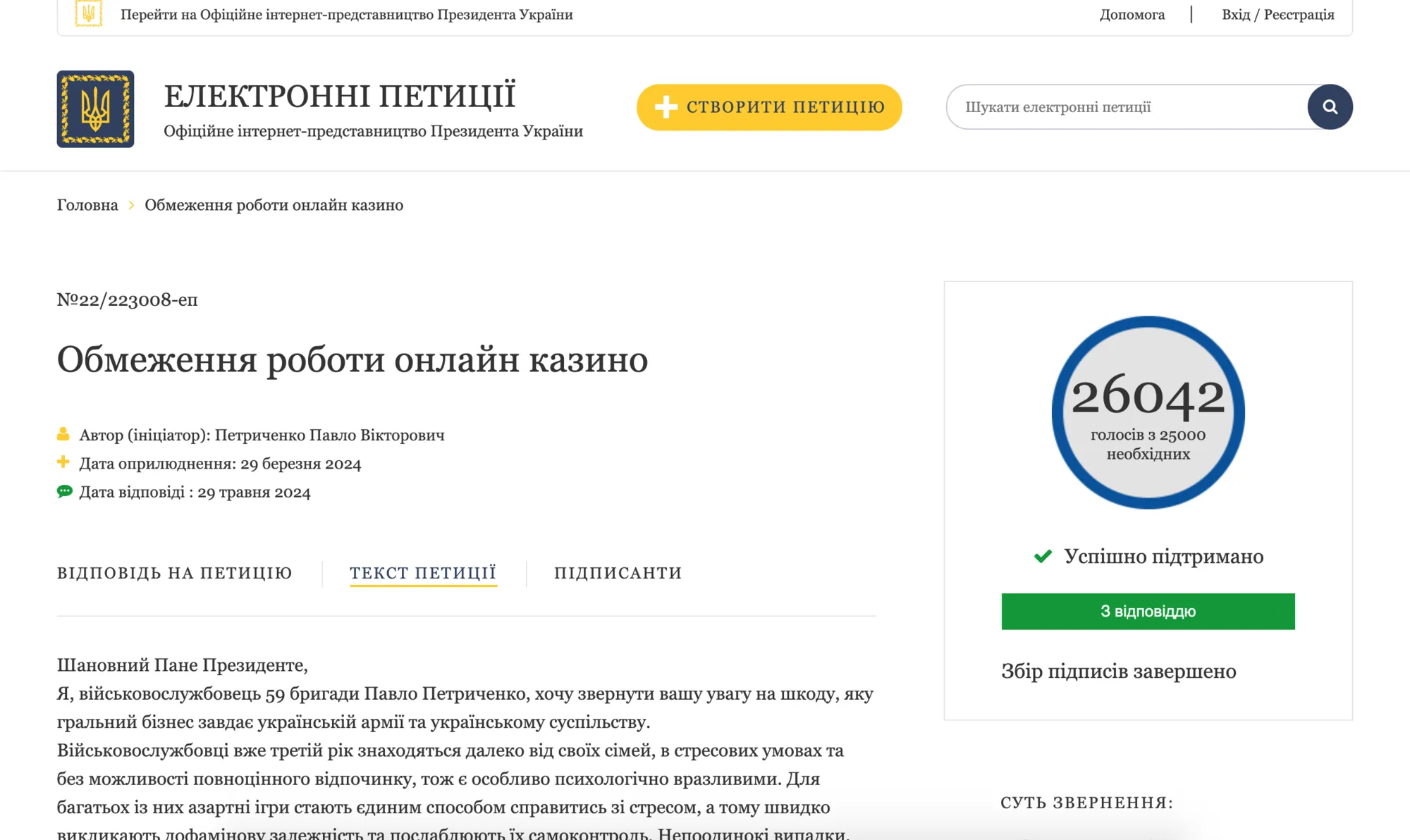
В свою очередь, председатель КРАИЛ Иван Рудой считает, что проблема лудомании среди военных нуждается во внесении изменений в законодательство. Он предлагает предоставлять командирам военных подразделений право подавать предложения в КРАИЛ по включению отдельных военнослужащих в реестр лиц, которым ограничен доступ к игорным заведениям. Однако это требует дополнительных законодательных изменений. Также он отмечает, что нынешний реестр лудоманов не предусматривает информацию о профессиональной деятельности лиц.
Конечно, КРАИЛ ведет Реестр лудоманов, в который включаются лица, которым ограничен доступ к игорным заведениям. Однако этот реестр не включает сферу онлайн-гемблинга, что позволяет игрокам с зависимостью продолжать играть в интернете без ограничений. Онлайн-казино остаются самым главным источником распространения лудомании, и ситуация только ухудшается из-за отсутствия эффективной политики КРАИЛ в отношении онлайн-игр.
Критики отмечают, что КРАИЛ недостаточно работает над созданием системы ответственной игры и помощи игрокам с зависимостью. Даже после введения механизмов самоограничения для игроков, страдающих лудоманией, около 25% взрослого населения Украины все равно сталкивается с игорной зависимостью. Ситуация усугубляется отсутствием четкой стратегии поддержки игроков и лечения зависимости, что является серьезной социальной проблемой.
Лицензирование игорного бизнеса
Идея легализации игорного бизнеса заключалась в том, чтобы ввести прозрачные и четкие процедуры лицензирования для субъектов этого рынка. Однако КРАИЛ оказалась в центре многочисленных обвинений в коррупции и непрозрачности при выдаче лицензий. Вместо честного и контролируемого рынка существует подозрение, что многие процессы лицензирования контролируются вручную, что открывает путь для коррупционных схем. Министр цифровой трансформации Михаил Федоров публично заявил о рисках, возникающих в результате непрозрачной работы КРАИЛ. Чтобы минимизировать человеческий фактор, было предложено автоматизировать процесс выдачи лицензий через IT-систему онлайн-мониторинга. Эта система могла бы позволить отслеживать взаимодействие между операторами и государством, однако его так и не запустили.
Председатель КРАИЛ Иван Рудой пояснил, что комиссия не разрабатывает самостоятельно продукт онлайн-мониторинга, а только работает над нормативно-правовой базой. Из-за полномасштабного вторжения финансирование системы было перенаправлено на другие потребности страны, но, по его словам, проект остается приоритетным для реализации в будущем.
Коррупционные скандалы в КРАИЛ: непрозрачность и подозрения
Деятельность КРАИЛ была неоднократно омрачена коррупционными скандалами. Глава КРАИЛ Иван Рудой оказался в центре громкого скандала, когда во время войны выдал лицензии компании «Parimatch», которая на тот момент находилась под санкциями президента Украины из-за подозрительных действий и возможных связей с россией. Это произошло через пять дней, что вызывает подозрения в коррупционной составляющей и нарушении законодательства. Фактически «Parimatch» обошла санкции и продолжила свою деятельность под другими брендами, а решение Рудого дополнительно подчеркнуло проблему непрозрачности работы КРАИЛ.
Ранее журналисты СтопКора обнаружили замаскированные «российские следы» в деятельности компании VBet и ее интересантов. А ООО «ВБЕТ Украина» фигурирует на сайте Комиссии по регулированию азартных игр и лотерей в перечне операторов, которым КРАИЛ выдала лицензию.
FavBet также подозревают в связях с российским рынком, в том числе из-за продолжения работы на территории России даже после начала военных действий в Украине. Компания также привлечена к схемам по продаже своей франшизы в РФ, что позволяет ей продолжать зарабатывать на игорном бизнесе в стране-агрессоре.
К скандалам вокруг КРАИЛ добавился случай, когда Иван Рудой был обвинен НАПК в несообщении о конфликте интересов при принятии решений о дисциплинарных производствах против руководительницы аппарата КРАИЛ. По этим обвинениям против Рудого было начато административное производство, а он внесен в Единый государственный реестр лиц, совершивших коррупционные правонарушения.
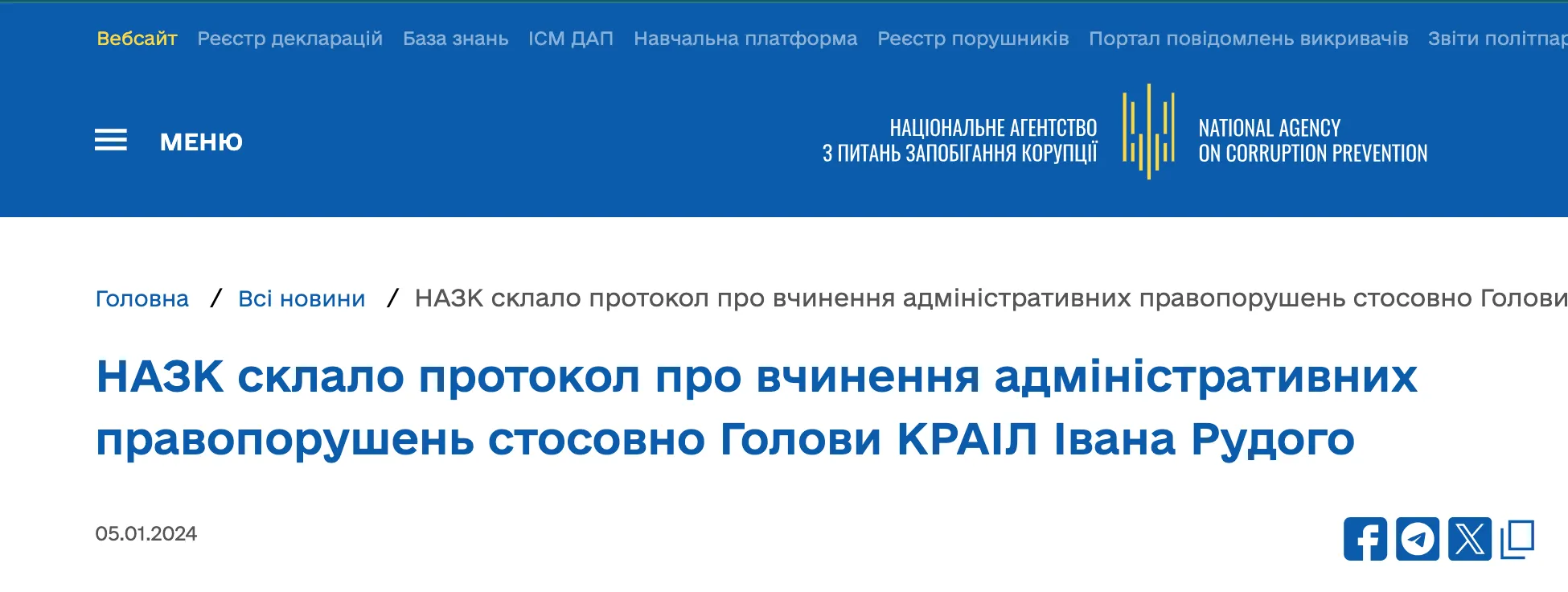
К тому же на Ивана Рудого и Дениса Шмыгаля НАПК составило протокол за незаконное разглашение информации о разоблачителе коррупции. Он обжаловал в суде протокол Национального агентства Украины по предотвращению коррупции (НАПК). В агентстве сообщали, что Шмигаль рассмотрел сообщение о коррупции от разоблачителя, а именно работника Комиссии по регулированию азартных игр и лотерей, и дал поручение соответствующим должностным лицам разработать такое сообщение. Но среди этих должностных лиц был и председатель КРАИЛ Иван Рудой, о противоправных действиях которого и сообщалось.
Другой случай коррупции касается члена КРАИЛ, требовавшего взятку в размере 90 тысяч долларов за выдачу лицензий и разрешений на игорную деятельность в Черниговской и Запорожской областях. Чиновник был разоблачен во время передачи взятки и был уволен со своей должности. Такие случаи не только подрывают репутацию комиссии, но и вызывают сомнения в добропорядочности всего процесса лицензирования игорного бизнеса в Украине.
Итог: реформа или ликвидация?
С начала своей деятельности КРАИЛ сталкивалась с коррупцией, непрозрачностью и слабым контролем на рынке азартных игр. Комиссия не справилась с основными вызовами – создать прозрачные условия для лицензирования, обеспечить эффективный контроль над нелегальным бизнесом и защитить игроков от лудомании. Скандалы вокруг руководства комиссии и отсутствие стратегического видения вызвали серьезную критику со стороны общества, политиков и экспертов.
На этом фоне появляются призывы к полной ликвидации КРАИЛ и созданию новой системы регулирования азартного рынка, где все процессы лицензирования будут автоматизированы и прозрачны. Это позволило бы снизить коррупционные риски и повысить эффективность государственного контроля. Однако вопрос остается открытым: станет ли реформа новым этапом прозрачного контроля за рынком азартных игр, или ситуация снова повторится, но уже под другим названием и новыми лицами?


